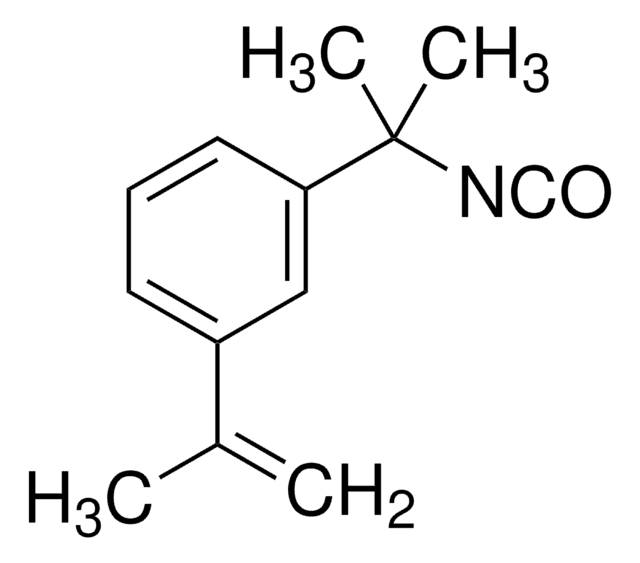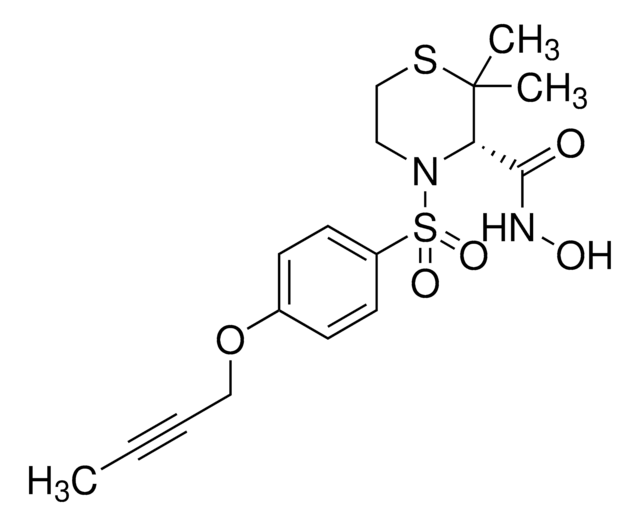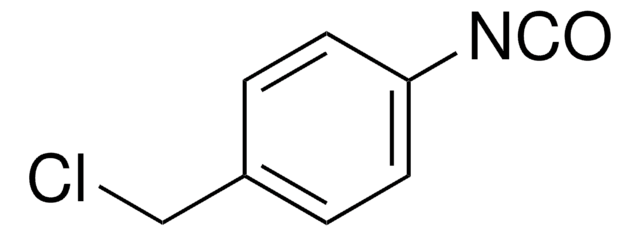477060
2-Isocyanatoethyl methacrylate
contains ≤0.1% BHT as inhibitor, 98%
Synonym(s):
2-(Methacryloyloxy)ethyl isocyanate, IEM
About This Item
Recommended Products
Assay
98%
contains
≤0.1% BHT as inhibitor
refractive index
n20/D 1.45 (lit.)
bp
211 °C (lit.)
mp
−45 °C (lit.)
density
1.098 g/mL at 25 °C (lit.)
storage temp.
2-8°C
SMILES string
CC(=C)C(=O)OCCN=C=O
InChI
1S/C7H9NO3/c1-6(2)7(10)11-4-3-8-5-9/h1,3-4H2,2H3
InChI key
RBQRWNWVPQDTJJ-UHFFFAOYSA-N
Looking for similar products? Visit Product Comparison Guide
General description
Application
- A reactive monomer in the synthesis of poly(methyl urethane) acrylate oligomer for UV-curable coatings. By incorporating urethane and acrylate groups into the polymer, it enables the polymer to be utilized in UV-curable coatings, inks, and adhesives.
- An additive in propylene carbonate-based electrolyte to enhance its properties, such as viscosity, conductivity, and stability. This improves the overall performance of the electrolyte and the battery.
- As a modifier in the copolymerization process to prepare a bioprosthetic heart valve, which is used in the application of transcatheter aortic valve replacement.
- A latent cross-linker for adhesive resins and coatings.
Signal Word
Danger
Hazard Statements
Precautionary Statements
Hazard Classifications
Acute Tox. 1 Inhalation - Acute Tox. 4 Oral - Eye Dam. 1 - Resp. Sens. 1 - Skin Irrit. 2 - Skin Sens. 1
Storage Class Code
6.1A - Combustible acute toxic Cat. 1 and 2 / very toxic hazardous materials
WGK
WGK 3
Flash Point(F)
210.2 °F - closed cup
Flash Point(C)
99 °C - closed cup
Certificates of Analysis (COA)
Search for Certificates of Analysis (COA) by entering the products Lot/Batch Number. Lot and Batch Numbers can be found on a product’s label following the words ‘Lot’ or ‘Batch’.
Already Own This Product?
Find documentation for the products that you have recently purchased in the Document Library.
Customers Also Viewed
Our team of scientists has experience in all areas of research including Life Science, Material Science, Chemical Synthesis, Chromatography, Analytical and many others.
Contact Technical Service













